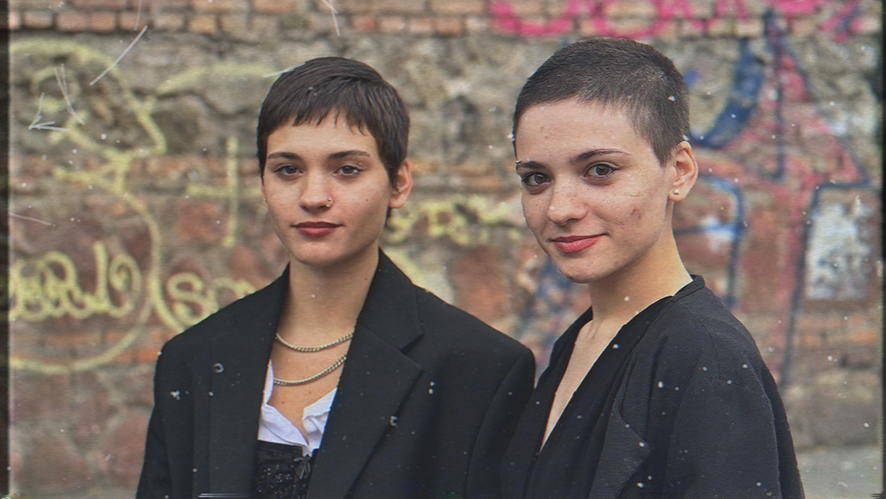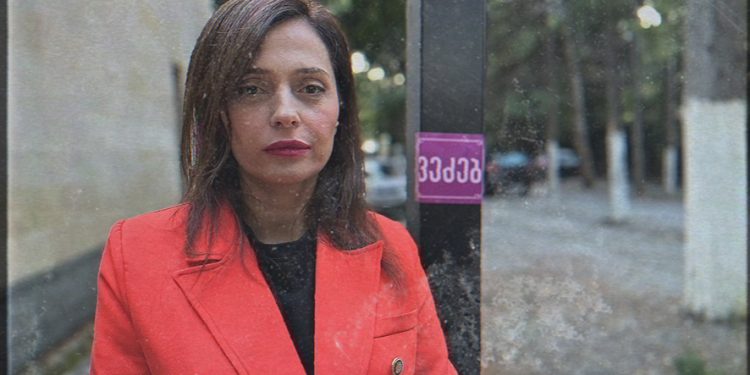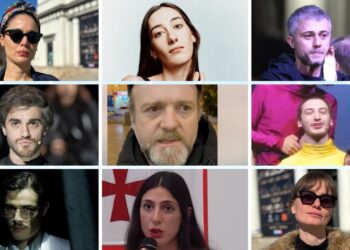Tamuna Museridze is a journalist who continues to make strides in dissecting the black market in Georgia that encouraged the illegal sale of babies by hospital staff through the 1970s and mid-2000s.
Tales sadly abound in Georgia about mothers who were told their children died shortly after birth, and who were not given a chance to see their bodies and say goodbye. It turns out that many of these babies did not die, and were instead sold to adoptive parents illegally. Museridze has been investigating these cases for years, driven by her own search, and while she has yet to find her own biological parents, progress in reuniting others is being made. Museridze found out she was adopted at the age of 31, and made it her mission to find her real parents. This is when she discovered that Georgia had a black market scandal going back years, that saw babies stolen from mothers in hospitals and given up for adoption.
As part of her campaign, Museridze made a Facebook page, “Vezdeb,” to share information about adopted children and to create a space for those involved to talk about what they are going through. When one of the members found their biological parents, the site “exploded” with further hopefuls looking to find their families.
Over the years since, more and more families have been reunited. The latest one to make the news around the world was that of identical twins Amy and Ano, and their reunion with their biological mother, who now lives in Germany. Amy and Ano are biological twins who made their first real discovery of each other through TikTok.

According to the BBC, the sisters saw each other on social media and were astonished by how similar they looked, so they decided to meet in person. Their birth certificates indicated that they were born at the same hospital, in the same year, but weeks apart. However, considering their looks and a vast number of other similarities – in interests, style, and even the same bone disorder (dysplasia), it was clear to them that they were twins.
After receiving agreement from their adoptive families, they went to Museridze’s Facebook group to try and find their biological mother. The BBC said the sisters told their story and received a response from a woman in Germany who had given birth the same year the twins were born, and at the same hospital. After DNA tests were conducted, it was concluded that Aza was indeed their biological mother.
Aza told them she fell into a coma shortly after giving birth, and when she woke up, she was told by the hospital staff that her babies had died.
This is just one of the many success stories that have come from Museridze’s Facebook group, but she is still searching for her own biological parents. Museridze said she always had this inkling that she was adopted.
“It’s really a feeling like I am not in the right place, that I belong somewhere else, to someone else, and I always felt the house where I was raised wasn’t my home,” Museridze told GEORGIA TODAY. “I had this feeling that I belonged somewhere else, but I couldn’t explain it. When I was a child, I kept saying I wanted to go and live in the USA, because I felt somewhere else calling to me, though I didn’t know exactly where.”
According to Museridze, some of the hospital staff that were involved in black market adoption are still working in hospitals today as directors or in other positions, even though it is not allowed by Georgian law. They know this information from the parents who bought babies – by taking the names of the doctors they bought them from and comparing them to those working in hospitals today.
The most important step moving forward for Museridze and her team is for the Georgian law to be changed. Museridze said that right now, adopted citizens cannot get access to their personal information like birth certificates, where they were born, when they were born, etc., unless they have the signed permission of their adopted parents. This law applies to everyone, regardless of whether they are a child or an adult.
Museridze has reached out to the government regarding this issue, and received a response promising a change to the law, but there is as yet no indication of progress. For Museridze, this has become her top priority.
“I care more about the people reaching out to us [on Facebook], and this work, than I do about finding my own biological parents. This mission has become my child. So many people are depending on me and believing in me, and I have a lot of responsibility,” she tells us.
Right now, the only platform being used by the Vedzeb group is Facebook. Museridze explained that they tried to open a webpage in the past, but it didn’t look the way she wanted, and to get it to the standard she needed, too much investment was required – the group doesn’t have sponsors, and everything is currently paid out of the pockets of volunteers.
Looking ahead, Museridze said she wants to take this group to a global level. In 2012, she heard that in Spain, they had identified 400,000 similarly stolen babies. It was only then she realized how prevalent the practice was throughout the rest of the world.
“After the BBC documentary, people started calling me from Bangladesh, Poland, Serbia, and Romania, and they were saying that this had happened to them, too,” Museridze says. “So now those people are searching for their parents, and we are going to make a National Government Organization and ask for help from others, maybe big organizations like NATO.”
The BBC documentary, ‘Betrayal at Birth: Georgia’s Stolen Children’, was released a few weeks ago. It highlights Museridze’s work and some of the stories that have come out of her Facebook group. She was also featured on the BBC’s 100 Women for 2023.
By Shelbi R. Ankiewicz














